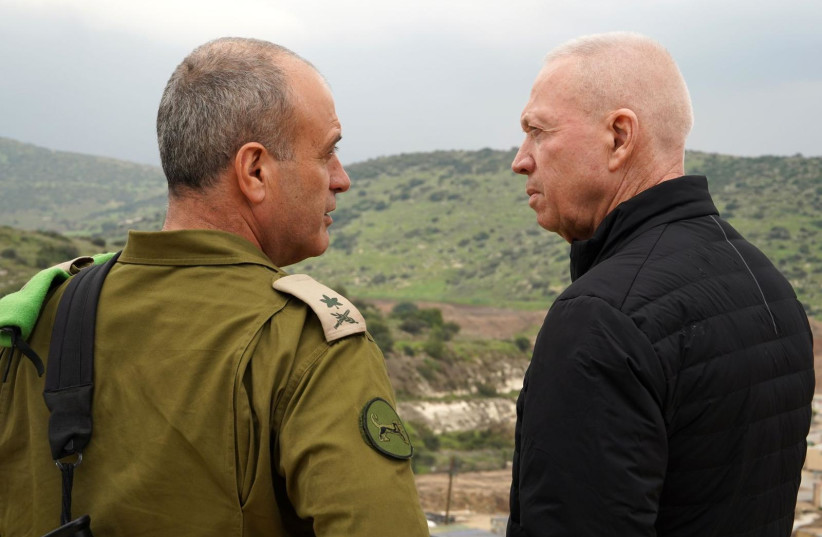Defense Minister Yoav Gallant on Tuesday warned that Iran, Hezbollah, and Hamas are trying to use Ramadan to inflame the region so as to achieve another October 7 disaster against Israel.
According to Gallant, their hope is to provoke Palestinians in the West Bank, Hezbollah, and Arabs and Muslims across the region to attack and turn their rage on Israel, using the Temple Mount and tensions in the West Bank as an excuse.
The defense minister has been a leading voice for smashing Hamas and earlier in the war, tried to persuade the war cabinet to launch a preemptive strike on Hezbollah.
Gallant calls for reducing tensions
However, at this point, he believes that fighting the war without hesitation must go hand in hand with reducing tensions in areas where there is no reason for there to be tensions.
This means Gallant is strongly against National Security Minister Itamar Ben- Gvir’s push to reduce access to the Temple Mount for certain Israeli-Arabs or Palestinians during Ramadan.

Further, he has pushed for over a month to allow Shin Bet-approved Palestinian West Bank workers to return to their Israeli jobs.
Prior to the war, there were around 210,000 Palestinian West Bank workers constantly going to work for Israelis, with the number of those who committed terrorist attacks in single digits.
The vast number of terrorist attacks over the years are committed by Palestinians who break through the security barrier.
Based on these consistent factors, both the IDF and the Shin Bet have consistently recommended returning Palestinian West Bank workers, as opposed to Palestinian Gaza workers, which all authorities currently oppose.
Despite these recommendations, Prime Minister Benjamin Netanyahu has sided with Ben-Gvir on most of these issues to date.
Meanwhile, in the North, IDF fighter jets struck a military site and infrastructure belonging to the Hezbollah terrorist organization in southern Lebanon.
The Hezbollah infrastructure that was destroyed was located in the villages of Jebchit, Baisariyeh, and Mansouri. In addition, Israeli forces used artillery to strike at and remove a threat in the Yaroun region.
This was following dozens of rockets being fired towards Israel earlier. The IDF reported that 35 rockets were fired against the Mount Meron area. There were no Israeli casualties from the rocket fire.
Hezbollah said it had launched the rockets at Israel’s aerial surveillance base near Mount Meron in response to the Israeli military’s deepest attack yet into Lebanese territory on Monday at Baalbek.
Baalbek is around 100 kilometers away from the Israeli border and is in Lebanon’s northeast, whereas most IDF attacks to date have been focused only on southern Lebanon, or on Beirut, which is still much further south than Baalbek.
Later Tuesday, Hezbollah said it launched another barrage of around 20 rockets targeting IDF Division 146 and Western Galilee areas which have not heard rocket sirens since the start of the war.
IDF Chief of Staff Lt.-Gen. Herzi Halevi said Hezbollah would pay a steep price if it did not back down from attacking Israel, including withdrawing its Radwan forces from the border in compliance with UN Resolution 1701 from the 2006 Second Lebanon War.
In the South, the IDF said that it destroyed Hamas rocket-launching teams hours after they had fired rockets on Israel late Monday.
Hamas fired rockets not long after Israel had made waves in the media about more southern residents returning to their homes.
Besides the small number of rockets launched by Hamas on Monday, its capabilities to launch rockets have been massively reduced since early January, with no launches at Tel Aviv or central Israel in well over a month.
The IDF also continued rooting out small groups of terrorists throughout Gaza on Tuesday, though there were no major battles.
